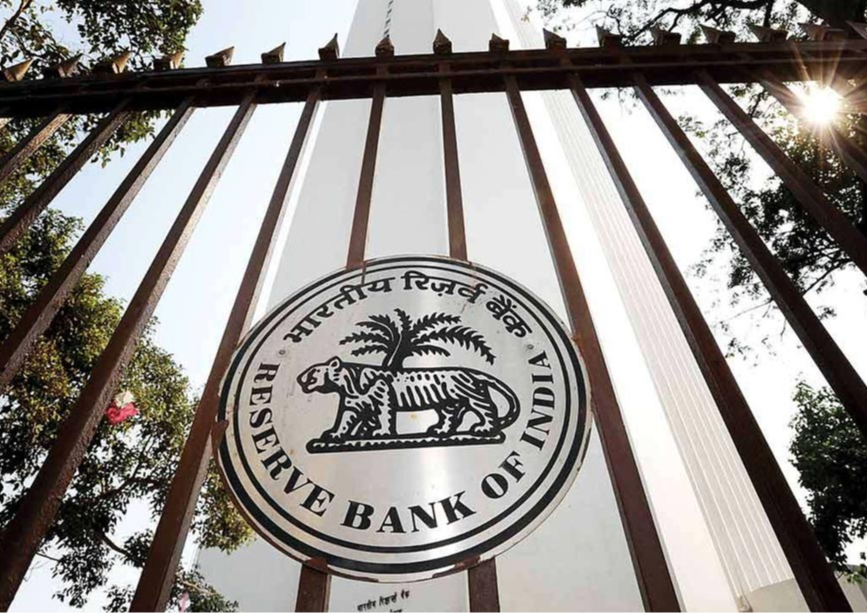-
CENTRES
Progammes & Centres
Location
RBI’s draft disclosure framework on Climate-related financial risks is a welcome step, but there are challenges ahead

Reserve Bank of India’s (RBI) recent draft disclosure framework on climate-related financial risks is a welcome step for the banking sector to manage the imminent and material risks. The draft disclosure is not a surprise. RBI acknowledged climate-related financial risk as a systemic risk to the banking sector in 2020 and signalled to take regulatory measures in 2022 when it released the “Discussion Paper on Climate Risk and Sustainable Finance”. Climate-related financial risk is further highlighted in the Currency and Finance report by RBI in April 2023. The rule is applied to almost all the regulated entities (REs) of RBI, including almost all commercial banks, rural banks, co-operative banks, All-India Financial Institutions (AIFIs), Non-Banking Financial Companies (NBFCs), and foreign banks’ Indian operations.
RBI recognised that climate-related disclosure is important not only for shareholders but also for other stakeholders, including depositors, investors, and regulators. While investors of REs must assess the climate-related financial risk of banks, regulators can identify and determine the extent of exposure to climate risks in banks’ books and make informed and appropriate policy and regulatory decisions to manage these systemic risks that can potentially destabilise the financial system.
RBI recognised that climate-related disclosure is important not only for shareholders but also for other stakeholders, including depositors, investors, and regulators.
Moreover, these disclosure practices could indirectly help climate-friendly businesses to borrow capital at a lower rate compared to carbon-intensive businesses, as climate change is priced in loans. As REs are not factoring climate-change risk in the pricing of loans, green companies are not getting any tangible benefits from being ‘green,’ resulting in lower credit flows to these sectors. On the side, the lack of differential loan pricing doesn’t encourage corporations to allocate capital to low-carbon technologies. Climate-related disclosure can nudge banks to consider climate-related risks in their lending decision that will support India’s green economy transition while managing these risks.
The Disclosure Framework is divided into four thematic areas: Governance, Strategy, Risk Management, and Metrics and Targets. This is in line with the IFRS S2 standard climate-related disclosure built on the recommendations of the Task Force on Climate-related Financial Disclosures (TCFD).
The focus on governance will exert pressure on the board and top leadership at most of the banks to incorporate climate change in their oversight, assessments, and management. However, there are challenges associated with following these regulatory measures as several REs, particularly co-operative banks, public sector banks, and NBFCs. The challenge will be whether the board and top leadership team of REs are well-equipped and with the right knowledge base to identify, assess, and manage these risks. It is critical for the board of directors and management team members in all the REs to get acquainted with climate-related risks and opportunities so that they can make these strategic decisions with the right knowledge base and insights.
The challenge will be whether the board and top leadership team of REs are well-equipped and with the right knowledge base to identify, assess, and manage these risks.
The disclosure of REs’ tactical and strategic plans is focused on the identification of these risks and opportunities, the impact of these risks and opportunities on the company’s planning, and the resilience of REs’ strategy in different climate scenarios. All these disclosure frameworks could nudge REs to decarbonise their lending portfolio—reduce exposure to carbon-emitting or polluting businesses, accelerate green lending, and develop transition planning. However, the challenge to implement these would be whether REs are ready to implement these ambitious measures—whether banks have trained staff, and whether REs have initiated a conversation with borrowers in the real economy to decarbonise their business. The rush to transition planning without preparation and consideration of borrowers can strain credit flows to the economy—not an ideal choice for a growing economy.
The third is risk management—the process followed to identify, assess, prioritise, and monitor these risks and opportunities. This disclosure will build confidence among stakeholders to understand whether risks are properly assessed and managed. Moreover, the integration of climate risk with overall risk management will mainstream climate risk instead of just a public relations and fringe exercise.
The inclusion of financed emission disclosure for scheduled commercial banks, AIFIs, and NBFCs for each industry by asset class is another fantastic step.
The last thematic area is Metrics and Targets. It is related to climate-related targets, including progress toward this target it has set and is required to meet by statute or regulation. The inclusion of financed emission disclosure for scheduled commercial banks, AIFIs, and NBFCs for each industry by asset class is another fantastic step. These adjustments will enhance transparency regarding the involvement of banks and financial institutions in greenhouse gas emissions, as well as their evolution over time. Asset-level financed emission can be the next financed emission disclosure step. This will enable stakeholders to gain a clearer insight into the contribution of banks to greenhouse gas emissions and can assist financial regulators in more accurately assessing transition risks.
Asset-level disclosure of financed emissions will be the next step for RBI and will be challenging. The Medium and Small Enterprises (MSMEs) do not have the resources to disclose GHG emissions. Although the top 1,000 companies in the stock market are disclosing GHG emissions, disclosure is limited to Scope 1 and Scope 2 emissions. Unless borrowers disclose meaningful, verifiable, and timely information on GHG emissions, it will not help banks to make an informed lending decision related to climate change. The solution can be a light format BRSR for MSMEs and mandatory disclosure of Scope III emission—The Securities and Exchange Board of India (SEBI) is taking the right steps to make disclosure mandatory for listed companies but gradually. An Indian accounting approach can be developed, interoperable with Partnership for Carbon Accounting Financials (PCAF), to assess GHG emissions associated with loans and investments that meet the needs of India while maintaining global standards.
Unless borrowers disclose meaningful, verifiable, and timely information on GHG emissions, it will not help banks to make an informed lending decision related to climate change.
Better reporting and disclosure are key to attaining transparency in the financial system—a condition for the market to operate efficiently. RBI’s draft disclosure on climate-related financial risk and opportunities comes at the right time when India is accelerating towards a green and sustainable economy.
Views are personal and do not represent that of the author’s employers.
Labanya Prakash Jena is the Head of the Centre for Sustainable Finance at the Climate Policy Initiative (CPI).
Prasad Ashok Thakur is a CIMO scholar and an alumni of the Indian Institute of Management, Ahmedabad (IIMA) and the Indian Institute of Technology, Bombay (IITB)
The views expressed above belong to the author(s). ORF research and analyses now available on Telegram! Click here to access our curated content — blogs, longforms and interviews.

Labanya Prakash Jena is Director at the Climate and Sustainability Initiative (CSI) and a visiting senior fellow at the London School of Economics and Political ...
Read More +
Prasad Ashok Thakur is a CIMO scholar and has authored a book and several articles published with The World Bank Asian Development Bank Institute United ...
Read More +